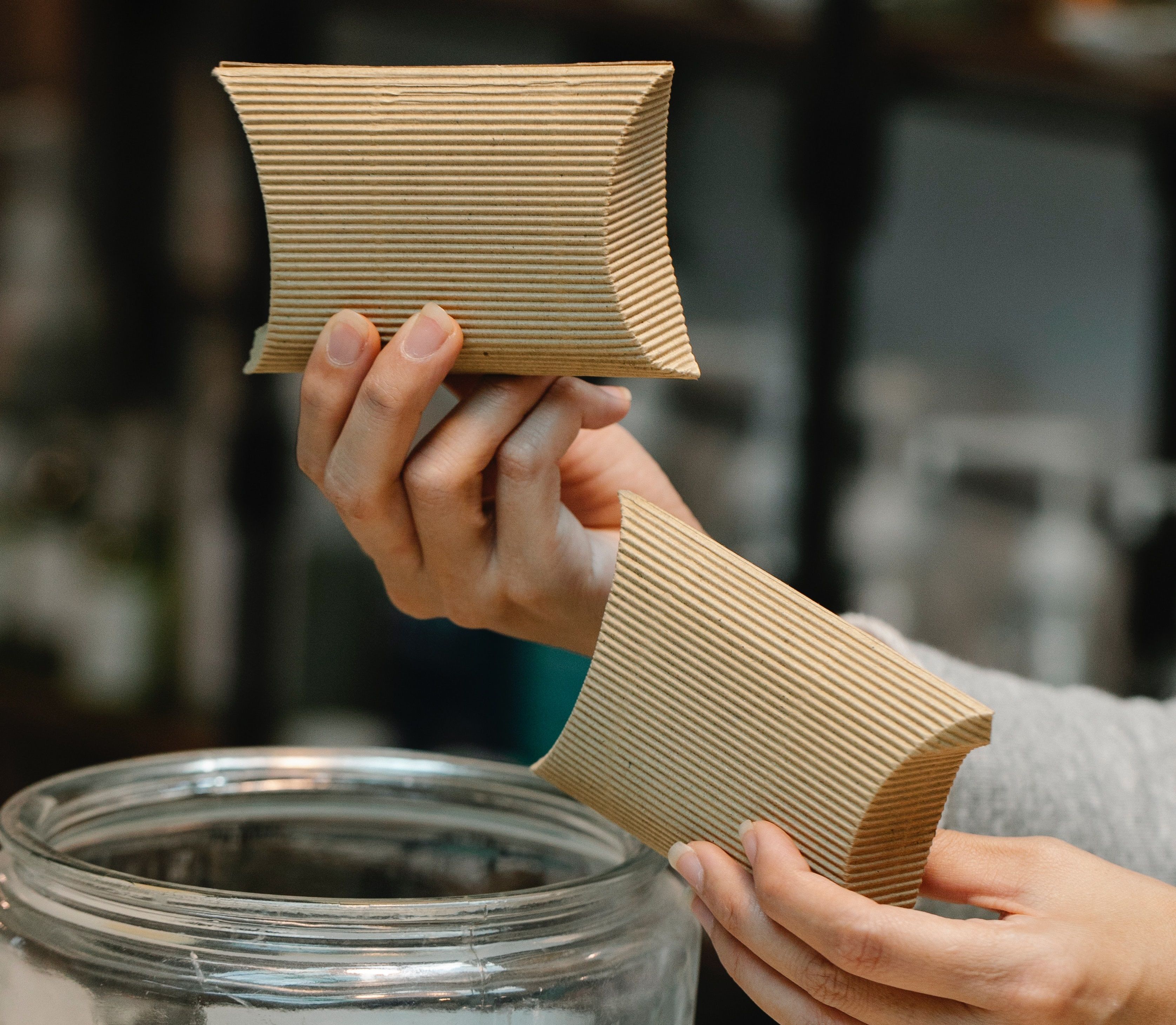Five sustainability trends transforming food & drink packaging

In recent years, the food and drink industry has been transformed by innovations in the packaging sector.
Packaging plays a crucial role in reducing waste, minimising carbon footprints, and preserving our planet's resources. In this blog, we will delve into the latest sustainable packaging trends that are revolutionising the food and drink sector.
Biodegradable and compostable materials
One of the most significant trends in sustainable packaging is the use of biodegradable and compostable materials. Brands are transitioning from traditional plastic packaging to alternatives such as bio-based polymers, moulded fibre, and compostable plastics made from renewable resources like cornstarch.
These materials have the advantage of breaking down naturally, reducing the environmental impact and litter caused by conventional plastics.
Recyclable and post-consumer recycled content
Increasingly, food and drink brands are opting for packaging that is easily recyclable and contains post-consumer recycled content.
By utilising materials such as cardboard, paperboard, and glass, which are widely accepted in recycling systems, brands enable consumers to participate in the recycling process. Incorporating recycled content into packaging helps reduce the demand for virgin materials, conserving energy and reducing greenhouse gas emissions.
Suppliers such as Berlin Packaging have implemented a benchmark model which provides direct access to their manufacturing process, employees’ health & safety and a voice for improving global conditions.
The company also offers different types of sustainable packaging, including; PCR (Post Consumer Regrind), PIR (Post Industrial Regrind), Biodegradable Products and PLA (Polylatic Acid), all of which contribute to a cleaner environment.
Lightweight packaging
Reducing the weight of packaging is another trend that aims to minimise the environmental impact throughout the supply chain. Lightweight packaging requires fewer resources for production and transportation, resulting in lower energy consumption and reduced carbon emissions. Brands are exploring innovative design techniques and materials that maintain product integrity while significantly reducing packaging weight.
IFE Manufacturing exhibitor Packaging Mode provides In-Mould Labelled (IML) pots which are food-safe, widely recyclable, customisable, more cost-effective than alternatives and will enable food & drink brands to sell more producers.
Reusable packaging and refill systems
To combat single-use packaging waste, reusable packaging and refill systems are gaining momentum. Brands are introducing durable, high-quality containers that can be returned, cleaned, and refilled with product, reducing the need for excessive packaging materials. Refill stations in stores allow customers to replenish their products, promoting a circular economy approach and significantly reducing packaging waste.
Innovative alternative materials
In the quest for sustainable packaging solutions, food and drink brands are experimenting with innovative alternative materials. For instance, edible packaging made from seaweed or other natural ingredients provides a novel and eco-friendly option. Additionally, plant-based plastics derived from sources like sugarcane or algae are being explored as viable alternatives to traditional petroleum-based plastics.
Companies such as Magnum Packaging have also introduced packaging made from organic materials including cotton and jute to meet their obligations towards a greener future.
Smart packaging technologies
Smart packaging integrates technology and sustainability, offering enhanced functionality while minimising waste. Sensor-enabled packaging can monitor freshness, temperature, and quality, helping to reduce food waste by providing real-time information to consumers and retailers. Smart labels and indicators can also indicate product expiry or spoilage, empowering consumers to make informed decisions and reduce food waste.
Sustainable packaging trends in the food and drink industry are transforming the way products are packaged and consumed. From the adoption of biodegradable and compostable materials to the incorporation of recycled content and the promotion of reusable packaging, brands are taking active steps to minimise their environmental impact.
Lightweight packaging, innovative alternative materials, and smart packaging further demonstrate the industry's commitment to sustainability. By embracing these trends, food and drink companies can make a positive contribution to the planet, appeal to environmentally conscious consumers, and shape a more sustainable future for the entire industry.
To keep up to date with the latest trends, interviews and industry news, subscribe to the IFE Manufacturing newsletter.
)
)
)
)
)
)
)
)
)
)
)
)
)
)
)
)
)
)
)
)
)
)
)
)